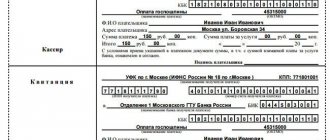1. The decision of the arbitration court in a case considered in summary proceedings is adopted immediately after the hearing of the case by signing the operative part of the decision by the judge and attached to the case.
The operative part of the decision adopted based on the results of the consideration of the case is posted on the official website of the arbitration court on the Internet no later than the next day after the day of its adoption.
Decisions on cases arising from administrative and other public legal relations and considered through summary proceedings are made by the arbitration court according to the rules provided for in Articles 201, 206, 211 and 216 of this Code.
2. At the request of a person participating in the case, or in the event of filing an appeal in a case considered under summary proceedings, the arbitration court draws up a reasoned decision.
An application for drawing up a reasoned decision of the arbitration court can be submitted within five days from the date of publication of the decision made in summary proceedings on the official website of the arbitration court on the Internet. In this case, the arbitration court makes a decision according to the rules established by Chapter 20 of this Code, unless otherwise follows from the specifics established by this chapter.
A reasoned decision of the arbitration court is made within five days from the date of receipt of a corresponding application from a person participating in the case or from the date of filing an appeal.
3. The decision of the arbitration court in a case considered through summary proceedings is subject to immediate execution. The said decision comes into force after fifteen days from the date of its adoption, unless an appeal is filed.
If a reasoned decision of the arbitration court is drawn up, such a decision comes into force after the expiration of the period established for filing an appeal.
If an appeal is filed, the decision of the arbitration court of the first instance, unless it is canceled or changed, comes into force from the date of adoption of the decision by the arbitration court of appeal.
4. The decision of the arbitration court of the first instance based on the results of consideration of the case in summary proceedings may be appealed to the arbitration court of appeal within a period not exceeding fifteen days from the date of its adoption, and in the case of drawing up a reasoned decision of the arbitration court - from the date of the decision in full volume.
This decision, if it was the subject of consideration in the arbitration court of appeal or if the arbitration court of appeal refused to restore the missed deadline for filing an appeal, and the decision of the arbitration court of appeal adopted in this case, may be appealed to the arbitration court of cassation on the grounds , provided for in Part 3 of Article 288.2 of this Code.
- Article 228. Peculiarities of consideration of cases under simplified proceedings
- Article 229.1. Court order
Time limits for consideration of cases in arbitration courts
Today, the deadlines for making decisions on cases within the jurisdiction of arbitration courts are:
- In the first instance - no more than three months from the date the plaintiff applied to the court (this period includes the time to prepare the case for trial);
- The three-month period, if there is a reasoned appeal from the judge, can be extended to 6 months by the decision of the chairman of the arbitration court. Good reasons for extension: complexity of the case, large amount of documentation or participants in the process;
- Judicial proceedings may be postponed or suspended if there are objective reasons - the period of suspension in this case is not included in the above consideration periods.
What's happened?
The Plenum of the Supreme Court of the Russian Federation adopted two resolutions on the rules of appeal and cassation in economic disputes:
- Resolution of the plenum of the Supreme Court of the Russian Federation dated June 30, 2020 No. 12;
- Resolution of the plenum of the Armed Forces of the Russian Federation dated June 30, 2020 No. 13.
Although there are no large-scale changes for participants in the arbitration process, the decisions previously adopted by the plenum of the RF Supreme Court on the procedure for considering arbitration cases in the courts of appeal and cassation required adjustments taking into account established practice and changes made to the legislation. As a result, judges of the RF Supreme Court established several important innovations.
General scheme of consideration of a case in an arbitration court
Stage 1: Filing a claim
The statement of claim is submitted strictly in the form established by law in writing; the statement must be signed by the plaintiff or his representative, or several signatures if the statement is submitted by several plaintiffs or their representatives.
The application must contain some mandatory details, a complete list of which is given in paragraph 2 of Article 125 of the Arbitration Procedure Code of the Russian Federation.
Note! Simultaneously with filing a lawsuit, the plaintiff must send by registered mail with notification to the other participants in the case copies of the statement of claim and all its attachments.
Within 5 days from the date of application, the court makes a decision either to begin proceedings, or to refuse to begin proceedings, or to leave the application without progress.
Stage 2: Preparing for the trial
Preparations for the trial are carried out by the arbitration court judge directly responsible for the case - at this stage, he studies the nature of the economic dispute and the circumstances essential to the case, decides on the composition of the trial, and creates the prerequisites for reconciliation of the parties.
Stage 3: Litigation (if the parties have not reached an amicable agreement or a decision has not been made to suspend proceedings)
The court, in accordance with procedural rules, notifies the parties of the time and place of the court hearing, during which all evidence and testimony are examined, after which the parties begin the debate.
Stage 4: Adjudication
After a comprehensive examination of the case during the trial, the court makes a decision on the case: either generally or separately for each of the plaintiff’s claims. The decision is drawn up in one copy and attached to the case materials, after which it is read out to the participants in the process.
Interim measures in cassation
The Plenum of the RF Supreme Court indicated that the court may consider a petition to suspend the execution of a judicial act even before the cassation appeal is accepted for proceedings. This is allowed if the complaint is filed via the Internet or a complaint is attached to the petition with a note indicating its receipt by the court of first instance. Until now, the RF Armed Forces have prohibited such practices. A cassation appeal, even if it is filed the next day after the decision of the appellate court, is delayed by the court of first instance until the deadline for a cassation challenge has expired.
Cassation instance
The next instance where you can appeal to review the decision of the arbitration court is the cassation court. The complaint is filed with the Federal Arbitration Court of the District against a decision that has already entered into legal force, and the following conditions must be met:
- the decision must previously be reviewed by the appellate court;
- The arbitration court of appeal refused to restore the missed deadline for filing a complaint.
The deadline for filing a cassation appeal is 2 months from the date of entry into force of the appealed decision. There are also exceptions to the terms of appeal, so the deadline for filing a complaint is 1 month for appeal:
- determinations on approval of a settlement agreement between the parties;
- decisions on cases challenging a normative legal act;
- rulings of the arbitration court in cases of enforcement of a court decision of a foreign state;
- rulings of the arbitration court in cases of challenging the decision of the arbitration court, as well as issuing a writ of execution for the forced execution of the decision of the arbitration court.
A cassation appeal is submitted in writing through the court of first instance, which adopted the appealed decision. The document can be delivered in person, sent by post or by filling out a special form offered on the official website of the court. The cassation appeal should indicate:
- name of the body to which the complaint was sent;
- information about the person who files the complaint and other participants in the process and persons participating in the case, indicating their place of residence or location;
- the name of the court that made the appealed decision, indicating the date of the decision, the case number and the subject of the dispute;
- the requirements of the person to verify the legality of the appealed judicial act and the grounds on which the person is appealing this decision are stated, with reference to regulatory documents, circumstances of the case and evidence;
- a list of documents attached to the complaint is listed;
- The signature and date of the document is affixed.
Depending on the circumstances, the following documents are attached to the cassation appeal:
- copies of cassation appeals according to the number of participants in the case;
- a copy of the judicial act that is subject to appeal;
- a receipt for payment of the state duty in the prescribed manner and amount or a petition for a deferment/installment plan of the state duty, to reduce its amount;
- a power of attorney or other document that confirms the person’s authority to sign the document if the complaint is filed by a representative.
Sample of a cassation appeal against a decision of an arbitration court
Time limit for appealing the decision of the court of first instance in Arbitration
At the end of the decision it must be indicated that it can be appealed within a month from the date of its issuance. Time begins to expire from the next day after the date of drawing up the act in final form. You are not late with your appeal if you managed to submit it through the electronic service or sent it by mail before 24 hours of the last day.
Note! If the last day to file an appeal falls on a date that is not on the calendar, then the time period for appealing ends on the last day of that month. For example, when a court decision was made on January 30, and there are only 28 days in February, the deadline for appealing is February 28.
Other deadlines are established for appealing cases:
- on administrative liability - 10 days;
- to transfer the dispute to another arbitration - 10 days;
- on compulsion to convene a general meeting - 10 days;
- simplified production - 15 days.
After the appeal period has expired, the court decision comes into force.
Suppose a person missed the deadline for appealing the decision of the arbitration court of first instance. The applicant can then file a motion, which can be part of the appeal or an appendix thereto.
The paper will be accepted by the court, provided:
- The period does not exceed six months. For direct participants in the dispute, the period is counted from the day the verdict was drawn up, for others - from the moment they learned about the infringement of their interests.
- The reasons for absence were recognized as valid.
The court will consider them as such if:
- the face became seriously ill;
- the person was caring for a sick relative;
- the court did not comply with the deadlines for preparing the decision;
- the court late sent a copy of the verdict to a person who was not at the hearing.
Business travel, vacation of the applicant's representative, absence of a lawyer on staff and change of manager are not considered as significant reasons.
Refusal to satisfy the petition is an argument for appealing to the cassation authority.
Legal assistance in appealing to the Courts of Appeal
Consultation in the office and by phone
+7(495) 728-99-14
Help from a lawyer. 18 years of experience in appeals in the Courts of Appeal!
We are working during the quarantine period of 2021! Call.
Results of the appeal against the decisions of the arbitration court
Based on the results of the consideration of the complaint, the judge makes a decision, which immediately comes into force. Possible outcomes of the appeal:
- leave the decision of the lower court unchanged,
- cancel the judicial act and send the case for a new trial to the arbitration court of first instance,
- cancel the judicial act in whole or in part and make a decision independently.
An arbitration lawyer always puts the interests of the client at the forefront. Therefore, she tries with all her might to resolve the dispute out of court.
It happens that the principal delays until the last minute contacting lawyers who are professionally involved in representation in arbitration courts. In turn, lawyers working within the company do not have a sufficient level of competence to comply with all formalities.
If you need help in drawing up a complaint or representing your interests in court, you can contact the Kakhiev and Partners law office. We will provide detailed advice and ensure effective judicial protection, both in the appellate instance and in cassation and supervision.
Court and claims: what does bankruptcy consist of?
To begin with, it is worth noting that in the bankruptcy procedure there are two main judicial acts:
- Direct decision to declare bankruptcy
. The same act introduces a procedure for the sale of property or debt restructuring for a citizen. - The final ruling of the court
, which completes the bankruptcy procedure. This act closes all a person’s debts: a decree is issued to release the citizen from fulfilling the claims of creditors.
If we talk about appeal, then you can only appeal the final act
, which writes off all debts. There is no point in arguing with the first decision: it does not give creditors anything, but simply establishes the fact that a person physically does not have sufficient income to fulfill all his loan obligations. However, there are people who want to appeal the first claim, albeit rarely. For example, over five years, the National Bankruptcy Center faced three attempts to appeal the first court decision. Needless to say that professional lawyers easily hit the ball and the applicants did not succeed? The appeals were not satisfied.
Test
Do you doubt whether you will be declared bankrupt?
Take 5 minutes and find out for sure. Take the test
The procedure for appealing the decision of the arbitration court of first instance (main stages)
To challenge the decision of the first court, the APC provides for several steps.
Appeal . The plaintiff, defendant or other interested person has the right to file a written objection to both the decision and the ruling of the court. It is not possible to raise new claims in the appellate court. If you want to add new documents to the case, you must have good reasons.
Cassation . Here they are more concerned with checking the legality of the decisions made. In order to overturn the original decision, gross errors in the application of legal norms must be discovered. In the court of cassation it is impossible to re-evaluate evidence if it was contradictory. The complaint is submitted directly to the cassation division.
Supervision . The complaint is sent to the Supreme Court of the Russian Federation. In this instance, the decisions of previous courts are reviewed for legality.
How to appeal a bankruptcy decision
It is the final determination, which in fact releases the bankrupt from all debts, that is in the creditor’s area of interest. Most often, it is individual creditors who file appeals.
In the practice of the National Central Bank, there is not a single case when the cassation authority would satisfy the demands of the creditor and cancel the determination to write off debts from a citizen
That is, there are a lot of people who want to appeal the decision to completely write off a person’s debts. However, the courts refuse this appeal - the cassation simply does not see any grounds for overturning the decision of the first instance. And how can you cancel a decision to free a person from debt if he approached the issue in good faith, did not resort to fraud, and the entire procedure was carried out strictly within the law?
We recommend that you read Intentional and fictitious bankruptcy: analysis of judicial practice
The deadlines established by law for appealing a judicial act also play into the hands of the bankrupt. These deadlines are prescribed in the court decision or ruling itself. All these documents must be sent to all participants in the case.
Why appealing bankruptcy is only a theory
Since the bankruptcy procedure for individuals has existed for more than five years, judicial practice is full of different cases.
Dmitry Tokarev
General Director of the National Central Bank “When the case of appealing bankruptcy reached the Supreme Court, the highest authority explained that indeed all creditors and the arbitration manager can object to the claims of other creditors who are represented in the bankruptcy case.
However, according to paragraph 10 of Article 16 of the Federal Law “On Insolvency (Bankruptcy)”, disagreements between creditors, provided that the decision to write off debts has already entered into force, are not considered within the framework of the bankruptcy case. The only thing creditors can count on is a review of the circumstances related to the execution of the court decision or its revision. Accordingly, if a creditor missed the deadline within which he could have filed an objection to write off debts, his claim or appeal will not be accepted for consideration.” Thus, already a month after the court review of the decision, all debts from a person are written off, and creditors will never be able to demand the debt again - the law does not have retroactive effect.
And, knowing how often the post office loses notices and documents, one can assume (and practice confirms this) that the cancellation of a court decision to completely write off debts from an individual is something out of science fiction. Therefore, if you are choked by debts, you can no longer fulfill your obligations, feel free to decide on the bankruptcy procedure. If you approach the process competently and seek help from professionals in your field, neither a bank, nor an MFO, nor an individual creditor will ever be able to reverse a court decision to completely write off debts.
Proof
Judges of the Supreme Court of the Russian Federation allowed the courts of appeal and cassation not to consider the opponent’s arguments in objections to the complaint if they go beyond its limits. Previously, such an obligation was fixed by the plenum of the Supreme Arbitration Court of the Russian Federation.
The Plenum of the RF Supreme Court changed the rule on additional evidence in the appeal hearing. Unreasoned acceptance of new evidence by the appeal (and unjustified refusal to accept new evidence) may become the basis for the cancellation of the judicial act of the appellate instance. Until now, the admission of additional evidence by the appellate court could not be a basis for canceling the appellate decision or determination.
The resolution of the plenum of the RF Supreme Court emphasizes that additions can be submitted to the cassation court containing a “purely legal” substantiation of the arguments and based on evidence available in the case materials.
Making a statement
Applicants have the right to submit a complaint both in writing and in the form of an electronic document. A complaint can be sent by mail, through a multifunctional center, as well as using information technology and communication infrastructure, including the portal of state and municipal services (functions). An appeal against the actions of officials of the antimonopoly service can also be filed in person.
The document must indicate:
- information about the FAS unit and the document that is being appealed;
- information about the applicant (full name, name of legal entity, contact phone number, email address, return postal address);
- arguments and documents (if available) that substantiate the applicant’s position.
The complaint will not be considered if the text is unreadable, contains insults, or threats.
Also, a claim can be sent by mail, transmitted electronically using the electronic reception functionality, or transmitted in person.
Is it possible to file a cassation without an appeal against an arbitration ruling?
As a general rule, an appeal to the cassation authority is possible only after an appeal has been completed. Having skipped this stage, the court decision enters into legal force and is not subject to appeal.
The only exception is the case when the court refused to satisfy the petition to restore the period of appeal, indicating this in the ruling on the return of the appeal. In this case, payment of state duty is not provided.
This exception does not apply to cases of bringing to administrative liability if the amount of the fine does not exceed 100 thousand rubles. for organizations, 5 thousand rubles for individual entrepreneurs.








